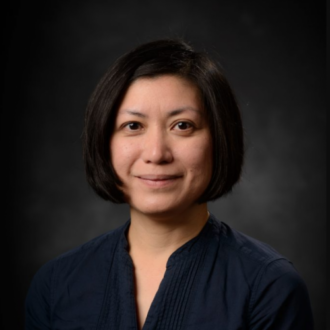Edna Tan

Hooks Distinguished Professor of STEM Education
Teacher Education and Higher Education
Email Address: e_tan@uncg.edu
Phone: 336.334.3476
Education
- Ph.D. in Science Education, Columbia University in the City of New York, February 2007 (Title of dissertation: Latina girls’ identities-in-practice in 6th grade science)
- Masters in Science Education, Ed.M., Teachers College, Columbia University, May 2003
- Postgraduate Diploma in Education, Nanyang Technological University, National institute of Education, August 1998
- Bachelor of Science Honors (second division upper), National University of Singapore, School of Biological Sciences, July 1997
Research & Publications
- Justice-oriented STEM teaching and learning
- Participatory critical ethnography
- Community & design-based research+practice+partnerships
- Critical connected learning
Tan, E., & Calabrese Barton, A. (2020, Early View). Hacking a path in and through STEM: Exploring how youth build connecting pathways between STEM-related landscapes. Teachers College Record. https://www.tcrecord.org/Content.asp?ContentId=23204
Calabrese Barton, A., & Tan, E. (2020, Early view). Beyond Inclusion: Equity as Establishing Rightful Presence. Educational Researcher. DOI: 10.3102/0013189X20927363
Calabrese Barton, A., Tan, E., & Birmingham, D. (2020, Early View). Equitable & Consequential Teaching & Learning: Towards Dismantling Systemic Injustices through New High Leverage Practices. Journal of Teacher Education https://doi.org/10.1177/002248711990020
Tan, E., Calabrese Barton, A., & Benavides, A. (2019). Engineering for sustainable communities: Epistemic Tools in support of Equitable and Consequential Middle School Engineering. Science Education. 103(4), 1011- 1046.
Calabrese Barton, A., & Tan, E. (2019)*. Designing for rightful presence in STEM: Community ethnography as pedagogy as an equity-oriented design approach. The Journal of Learning Sciences. DOI: 10.1080/10508406.2019.1591411,1-43.
*2019 Best Paper of the Year Award, The Journal of the Learning Sciences
Tan, E., & Calabrese Barton, A. (2018). Towards Critical Justice: Decolonization & Reinhabitation in STEM-rich making with youth from non-dominant communities. Equity & Excellence in Education, 51(1), 48-61
Projects
NSF funded AISL Project: Research in Service to Practice: Equitably Consequential Making among Youth from Historically Marginalized Communities
Award # 1392586 (PI: Angela Calabrese Barton, Co-PI: Edna Tan)
Equitably Consequential Making, a Research in Service to Practice 4-year project, focuses on understanding and designing for equity in STEM-oriented making for youth from historically underrepresented backgrounds, including recently-resettled refugee youth. Given the proliferation of makerspaces in education settings, we seek to contribute new knowledge and practice for transforming the maker culture in ways that are equitably consequential; processes and outcomes of making which: a) Deepen STEM and making knowledges & practices; b) Connect STEM-making with one’s community and with broader social issues; and c) Support transformative outcomes at the individual and community level focused on learning, becoming and doing in STEM through sustained engagement in making.
NSF funded DRK12 Project: Tools for Teaching and Learning Engineering Practices: Pathways Towards Productive Identity Development in Engineering [I-Engineering]
I-Engineering supports student identity development in engineering as a part of (not apart from) learning two core practices in engineering: 1) defining problems and 2) designing solutions. In particular, the I-Engineering framework and tools helps teachers/students to localize the engineering design process. The process of localizing engineering design as involving iterative engagement with both the technological and social dimensions of engineering design towards refining the problem constraints/specifications while exploring possible modes of solution optimization for particular people/contexts. We will ground this work in two engineering design challenges: safe/green commutes and portable energy, both of which fall under the domain of engineering for sustainable communities.
Learn more: engineeriam.org